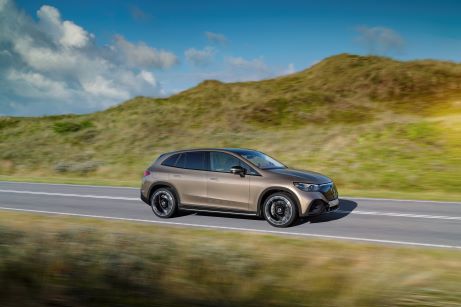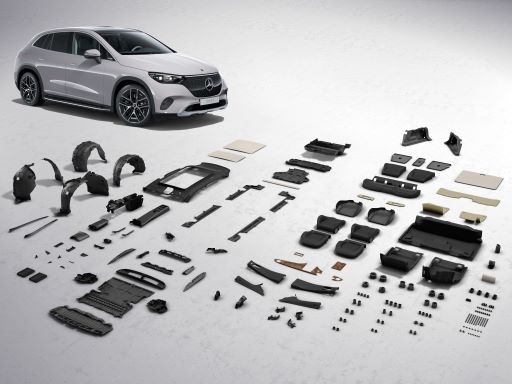
All Electric Mercedes EQE SUV
London, 26 October 2023, (Oilandgaspress) – EQE SUV is another important milestone on the way to making the new-car fleet of Mercedes‑Benz net CO₂-neutral by 2039. When developing a new model, the brand with the three-pointed star focuses on its environmental performance throughout each vehicle‘s entire life cycle. As a result of environmentally compatible product development, Mercedes-Benz has been publishing product-related environmental information since 2005, all of which is verified by independent experts and documented concisely in the 360° Environmental Check. The latest edition featuring the EQE 350+ SUV (WLTP: electricity consumption combined: 21.8-17.6 kWh/100 km; CO₂ emissions combined: 0 g/km)
Mercedes-Benz presents two scenarios to show how renewable energy is used, both assuming mileage of 250,000 kilometres. If renewable energy is used for charging the high-voltage battery and manufacturing the battery cells, CO₂ emissions can be almost halved over the entire life cycle of the EQE SUV based on an analysis[2] by Mercedes-Benz in which different energy sources were included. The second approach is based on the conventional electricity mix.

Exactly 132 components with a combined weight of 65.1 kilograms can be produced for the EQE 350+ from resource-saving materials including plastic recyclates and renewable raw materials. For example, DINAMICA is a high-quality recycled microfibre material, with a look and feel similar to suede, that is used for seat covers. The materials contained in DINAMICA come from recycled polyester and water-based polyurethane products such as fabrics and PET bottles.
A major improvement in the sustainability of battery cell chemistry is an optimised active nickel, cobalt and manganese material ratio of 8:1:1, which reduces the cobalt content to 10%.
All Mercedes-Benz passenger car and van factories worldwide have been CO₂-neutral since 2022. Further information here.
Mercedes-Benz is building its own battery recycling factory based on hydrometallurgy in Germany to improve the circular economy of lithium-ion battery systems from EQ vehicles.
Information Source: Read More
Energy ,Petrol , Electric Power , Natural Gas , Oil , Climate , Renewable , Wind , EV , LPG , Solar , Electric , Electric Vehicles, Hydrogen, Oil Price ,Crude Oil, Supply, Biomass , Sustainability,

